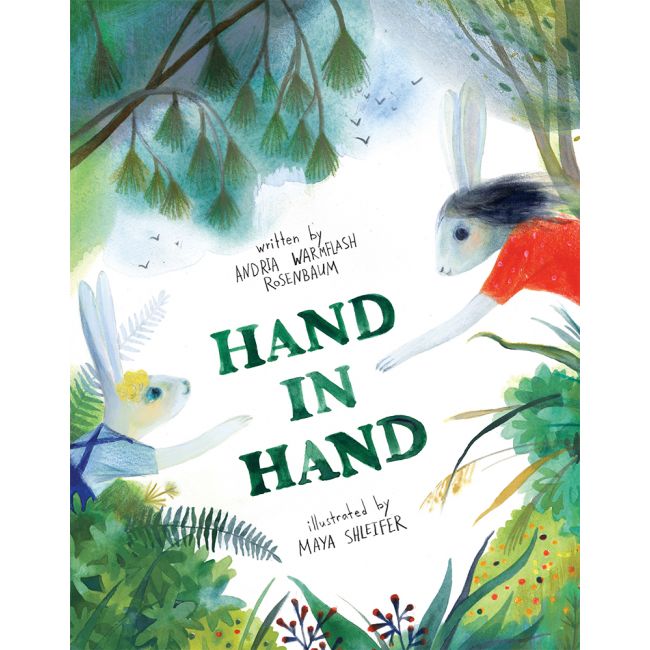Hand in Hand
Mama hugged us too tightly.
Pressed kisses upon our heads.
Then suddenly, like the sun
She was gone...
I held Leib's hand in mine.
I told him I'd never let go.
Separated from her family, Ruthi struggles to find hope in this universal story of loss and love, by holding tight to a childhood promise.
REVIEWS
A fablelike introduction to the Holocaust for the youngest audiences. Ruthi and Leib frolic happily in a field gathering flowers with their mother. But when "soldiers stomped brutish boots into town," their mother goes off to find food and never returns. The siblings are separated in an orphanage, and Ruthi goes to a nightmarish place "where numbers replaced names." She survives the war, emigrates, builds a life for herself as an adult, and, in her old age, reunites with her brother. Reminiscent of the stylings of Art Spiegleman's Maus, the children—based on compiled stories of Jewish youth, according to an author's note—are represented as rabbits (albeit with "blonde curls" on Leib and straight, dark locks that flow past Ruthi's ears), with other animal people present in background scenes. Adults looking for tools to introduce the subject of the Holocaust will find a helpful beginning in this emotion-driven story. (Picture book. 5-8)
— Kirkus Reviews
Read a fantastic review of Hand in Hand at The Author's Notebook!


